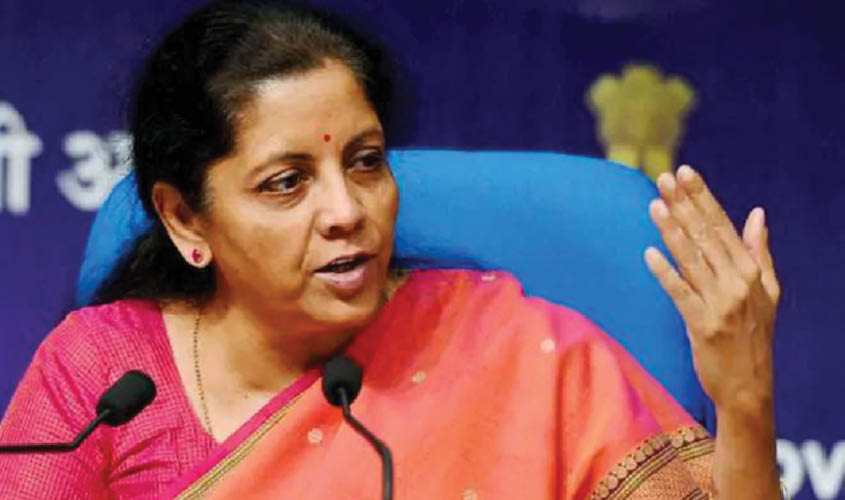Finance Minister Nirmala Sitharaman has already made history by becoming the first lady Defence Minister of India and the country’s first female Finance Minister. Given the enormous headwinds that are being faced by the economy, it is understandable that she has opted for a carefully constructed budget that has largely followed the caution shown by her predecessor Arun Jaitley. Rejecting calls for populist measures, the Jaitley Budgets were each careful not to overstep the bounds of fiscal rectitude. Tax rates were largely retained, while expenditure was sought to be contained in those sectors where this was possible. Given the high esteem that Jaitley enjoys in the BJP, it is no surprise that there are so few surprises in the first Sitharaman Budget. While tax rates have been retained, the slab at which income tax begins to get deducted has risen to Rs 5 lakhs per annum, which is a gain for those at the lowest end of the tax scale. What revenue lost through such a concession is sought to be made up through a modest hike in taxes levied on the upper income brackets and on consumers of luxury goods. The Finance Minister has showed imaginativeness in designing a miscellany of ways in which smaller enterprises as well as start-ups could be encouraged. Both are welcome steps, as small enterprise is the foundation of the economy. Small and medium enterprises have been passing through a period of high turbulence and any concessions given to them are welcome. Reduction of corporate tax to 25% could perhaps have been extended to all corporates, as a lower rate assists in preventing the kind of inventive book-keeping that leads to profits in India being passed off as revenue to locations where corporate tax rates are less. President Donald J. Trump slashed corporate taxes in the US and thereby ensured that several hundred billion dollars flowed back to the US from locations where they had earlier been parked. Even where income tax is concerned, there is a need to look at the slabs that have been in place for a very long period. Not just the lowest slab but the others too needed to be raised. There will be disappointment within the middle class that this has not been done, tinged with relief that tax rates were not raised still further. Although successive Union Finance Ministers have said that tax rates in India are low, they forget to add that the services provided by the state in countries such as the UK or Germany are far more than what the citizen gets in India. Or that in terms of local currencies, tax rates in India become effective at much lower levels of income than in many other countries. Of course, the careful manner in which the Budget was designed will send a signal to markets that the Government of India will not succumb to populism but will remain wedded to the path of fiscal rectitude. During his period as Finance Minister, Arun Jaitley was careful to avoid any “out of the box” measures such as a slashing of tax rates, despite the joy this would have given to taxpayers. Finance Minister Sitharaman is following in the footsteps of her predecessor by showing a similar caution. The Finance Minister has also gone far in seeking to convert Prime Minister Narendra Modi’s wish for a clean, green India to come true, especially by encouraging electric vehicles. This is another welcome move.
Several steps have been taken to make the burden of compliance less irksome, especially for small units. The tweaks in GST are welcome. The Prime Minister has promised a “good and simple” tax, and it is a matter of satisfaction that the Finance Minister is seeking to convert that command into reality. Hundreds of thousands of individuals have left the country to do business elsewhere, especially during the period when P. Chidambaram was Finance Minister. Ease of doing business needs to be improved upon. The budget has taken several steps in this direction but many more are needed if India is to attract back many of those who left these shores to become multi-millionaires in other countries. There are still too many regulations in India and too many paths that can get used to harass genuine entrepreneurs while at the same time allowing crooks to escape. Prime Minister Modi has called for zero tolerance to such cheats. He seeks decisive action against the anti-national people who illegally transfer vast sums of money abroad after persuading banks in India to give them loans that their business fundamentals do not merit in the least. Such depredators should be booked and soon. There are many VVIPs who have amassed obscene amounts of money in dishonest ways, and at least some of these need to be apprehended. Those who fled outside need to be brought back to face trial. The country expects much from Finance Minister Nirmala Sitharaman and the manner of her design and presentation of the Union Budget for 2019-20 indicates that they will not be disappointed.

